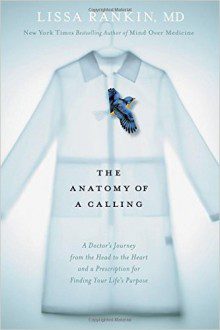By Lissa Rankin
Guest writer for Wake Up World
Savior, Victim, Perpetrator: The Three Roles of Victimhood
Unless we heal our core wounds, most of us spend our lives busy playing either savior, victim, perpetrator, or – very often – all three. Let me give you an example of what I mean by that. Meet Jill, who is simultaneously the savior, the victim, and the perpetrator.
The Savior
Jill had a rough childhood and grew up feeling unworthy. Her core wound is the limiting belief “I’m not good enough.” So to slap a Band-aid on her core wound ,and prove to herself and the world that she’s valuable and worthy, she become the world’s most helpful person. When she was young, she helped other kids with their homework, gave money to people she barely knew, volunteered at the nursing home, and doted on her best friend like she was royalty. When she got older, she started a nonprofit aimed at helping save the world.
When anyone winds up in trouble, they call Jill. If you’ve got cancer, Jill will drive you to your chemo appointment. If you’re in jail, Jill will bail you out. If someone broke your heart, Jill will clear her schedule so you can spend hours on the phone baring your soul while she listens. Jill brings food to those who are grieving, raises her hand at church anytime something needs to be done, and drops everything when her kids call asking for anything.
Once Jill’s kids left home, Jill took on three foster children who were crack babies. She has started savings accounts so she can help pay for her foster kids to go to college. She leads a camp for kids who have cancer every summer – without getting paid for it.
Jill is a good person, isn’t she? In fact, many people call her their “savior.” If you’re in need, Jill will swoop right in and help you.
The Victim
Jill gives so much of herself in order to prove to herself and others that she’s worthy that she winds up depleted. She spends so much money helping other people that she can barely pay her bills, much less travel the way she yearns to. She’s so busy volunteering that she doesn’t have time to do the things she really loves doing, like painting, skiing, and hanging out with friends who don’t need her.
If others really appreciated all her generosity, she would feel better. But rather than lauding her for how brilliant she rescues and saves people in need, the people she helps tend to walk all over her. In fact, they can be downright ungrateful, and often, after Jill has given them all she’s got, the needy people Jill rescues disappear, and then Jill feels used.
The Perpetrator
When she starts feeling victimized by those she tries to help, Jill can turn on you. On her good days, she can be so saintly that you feel like you’re looking into the eyes of Jesus. And then, because she’s pissed off that nobody appreciates her, Jill lashes out, and you’re suddenly shocked because Jesus just slapped you.
It’s not just that. Lying very shallowly beneath the surface of her desire to rescue you lies Jill’s desire to control you. When you’re in need – you’ve just lost a loved one, you’re in the middle of a divorce, you just declared bankruptcy, you have a new baby – you may be feeling overwhelmed, and you’re more than happy to let Jill come in and “fix” you. This is when Jill rises to the occasion and feels good about herself. On one level, this “fixing” Jill offers looks helpful. Jill will clean out your cupboard, throw away all your unhealthy food, and fill your kitchen with fresh produce and unprocessed foods. She’ll give you advice about your marriage and teach you everything she’s learned about relationships. She’ll help you breastfeed your baby, buy you baby clothes, and offer you parenting advice. She’ll insist you come to her church because the people are so helpful and nice. She’ll try to “fix” your business by offering up her creative ideas.
Before you know it, Jill is steamrolling right over your life, trying to control every aspect of it in the name of “helping.” When you’re not so needy and start to feel stronger and more empowered, you may resist Jill’s efforts to “fix” your life by setting boundaries and doing things your own way. But then Jill gets pissed off. Now you’re the ungrateful bastard who doesn’t appreciate all Jill did to save you.
You just got slapped again. In these instances, Jill functions as the perpetrator.
My Savior Complex
Jill is not a real person – she’s a culmination of you, me, my mother, my grandfather, my best friend, and thousands of clients I’ve helped. We’ve all been there. Many of us spend our whole lives cycling through this dysfunctional triad. We may not even be aware of it.
I’ve certainly been there myself.
Recognizing this dysfunctional triad has been a real eye-opener for me. I know I easily fall into my role of savior. In my family of doctors and missionaries, your value lies in how much you help people. If you are charitable and giving, even to the point of depletion, you have value. This is a HARD pattern to break.
In fact, I suspect it’s why I went to medical school in the first place. What better way to have value than to sacrifice your life, your health, and your money in order to serve the sickest and weakest. Surely, if I’m helping those people, I’m a good person.
But there’s a dark side to such giving. When I give too much and wind up depleted, I get pissed off. I feel resentful. I blame the people who are sucking the life out of me. I make myself the victim. Which isn’t fair. After all, I invite people to suck the life out of me. Up until a certain point, it feels good. It affirms me. But then I hit my wall. How are the people I’m saving supposed to know when I hit my limit if I don’t tell them?
Once I hit my limit, I start building walls. I shut people out. I get short with them. They don’t know what hit them. I become the perpetrator, which is SO not fair. They haven’t done anything wrong. I have. It’s my fault when I don’t protect my own time, space, money, and energy. People will suck off my cosmic tit until I make last call at the milk bar. Protecting my boundaries is my job – not theirs.
The Way Out
The only way out of the Savior / Victim / Perpetrator triad is to gain insight, accept responsibility for the fact that we create our own reality, identify what motivates us to fall into these patterns, find a way to meet our needs without slipping into these patterns, heal the underlying core wound that keeps rearing its ugly head, and refuse to engage in the savior, victim, or perpetrator role.
Next time you find yourself giving to the point of depletion, ask yourself why you’re doing it. Get REALLY honest with yourself. What lies at the core of your overgiving?
The next time you feel victimized, ask yourself what that’s all about. Sure, bad things happen to good people. It’s not your fault if you got molested as a child, raped as an adult, robbed by a masked gunman, betrayed by a colleague, or cheated on by your lover. But you can trust that these bad things happened because your soul needed to learn a lesson, and this negative experience showed up to teach you. When bad things happen, feel your feelings – grieve, get pissed, feel sad – then forgive, heal, let go. Find the gold. Learn your lessons. Then move on, rather than getting stuck in victim mode.
If you notice yourself lashing out, being unkind, hitting your wall, overstepping someone’s boundaries, trying to control someone, and hurting other people or leaving them feeling unsafe, pay attention. Even if you aren’t intentionally hurting someone, this is a sign that you’ve fallen into Perpetrator mode. Identify the REAL reason why you’re behaving in an angry, controlling, unkind way. Heal what’s at the core.
Healthy Relationships Are Good For Your Body
When you’re engaged in dysfunctional relationships, the body suffers. When you mend your relationships, the body heals. As I spoke about in my 2011 TEDx talk, being healthy in your interpersonal life is just as important – if not more so – than eating a healthy diet, daily exercise and getting enough sleep. Don’t you want to live as vitally as possible?
Are you a savior, victim or perpetrator? Tell us your stories. Share what you’ve learned. You can comment below, or join the conversation on Facebook.
Done rescuing people,

Recommended reading from Lissa Rankin:
- Relationships on the Spiritual Path
- The “Space Between Stories”
- How to Make Your Body Ripe for Miracles
- Are You “Spiritual But Not Religious?”
- A Lesson In Empathy
- 9 Practical Tips to Help You Find Your Calling
- 10 Fun Ways to Reduce Your Cortisol Levels
- 6 Stories To Make You Believe In The Power Of The Mind To Heal You
- 7 Tips For Finding Your Tribe
- 10 Surprising Things That Trigger “Fight-Or-Flight”
- 8 Steps to Turn Conflict Into Spiritual Gold: A Practice
About the author:
 Lissa Rankin, MD is a mind-body medicine physician on a grass roots mission to heal healthcare, while empowering you to heal yourself. She is the founder of the Whole Health Medicine Institute training program for physicians and healthcare providers, and the New York Times bestselling author of the books Mind Over Medicine: Scientific Proof That You Can Heal Yourself (2013), The Fear Cure (2014), and The Anatomy of a Calling (2015).
Lissa Rankin, MD is a mind-body medicine physician on a grass roots mission to heal healthcare, while empowering you to heal yourself. She is the founder of the Whole Health Medicine Institute training program for physicians and healthcare providers, and the New York Times bestselling author of the books Mind Over Medicine: Scientific Proof That You Can Heal Yourself (2013), The Fear Cure (2014), and The Anatomy of a Calling (2015).
Lissa blogs at LissaRankin.com, she is also the author of several other books, a speaker, a professional artist, an amateur ski bum, and an avid hiker. She lives in the San Francisco Bay area.
Connect with Lissa on Facebook and Twitter, or visit LissaRankin.com.
The Anatomy of a Calling: A Doctor’s Journey from the Head to the Heart and a Prescription for Finding Your Life’s Purpose
The new book by Lissa Rankin, MD.
We are all on a mission to step into our true nature and fulfill the assignment our souls were sent to Earth to fulfill.
In The Anatomy of a Calling, Lissa describes her entire spiritual journey for the first time — beginning with what she calls her “perfect storm” of events — and recounts the many transformative experiences that led to a profound awakening of her soul. Through her father’s death, her daughter’s birth, career victories and failures, and an ongoing struggle to identify as both a doctor and a healer, Lissa discovers a powerful self-awareness.
As she shares her story, she encourages you to find out where you are on your own journey, offering inspiring guideposts and practices along the way. With compelling lessons on trusting intuition, surrendering to love, and learning to see adversity as an opportunity for soul growth, The Anatomy of a Calling invites you to make a powerful shift in consciousness and reach your highest destiny.
Lissa Rankin’s book “The Anatomy of a Calling” is available here on Amazon.

If you've ever found value in our articles, we'd greatly appreciate your support by purchasing Mindful Meditation Techniques for Kids - A Practical Guide for Adults to Empower Kids with the Gift of Inner Peace and Resilience for Life.
In the spirit of mindfulness, we encourage you to choose the paperback version. Delve into its pages away from screen glare and notifications, allowing yourself to fully immerse in the transformative practices within. The physical book enriches the learning process and serves as a tangible commitment to mindfulness, easily shared among family and friends.
Over the past few years, Wake Up World has faced significant online censorship, impacting our financial ability to stay online. Instead of soliciting donations, we're exploring win-win solutions with our readers to remain financially viable. Moving into book publishing, we hope to secure ongoing funds to continue our mission. With over 8,500 articles published in the past 13 years, we are committed to keeping our content free and accessible to everyone, without resorting to a paywall.









